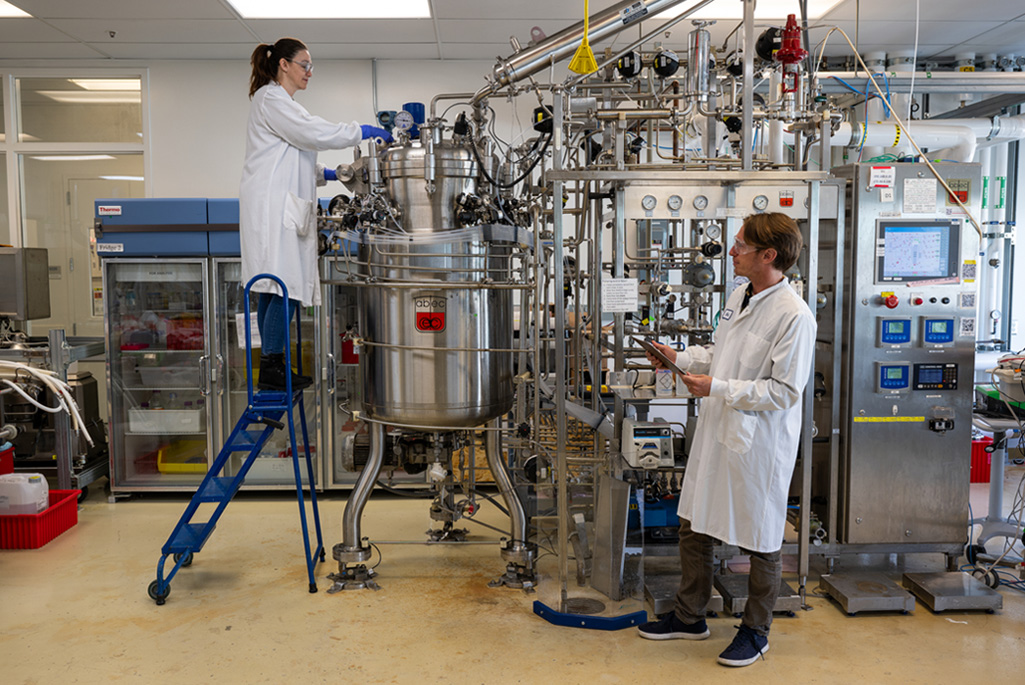
The Advanced Biofuels and Bioproducts Process Development Unit, or ABPDU, funded by the U.S. Department of Energy’s Bioenergy Technologies Office and run by Lawrence Berkeley National Laboratory (Berkeley Lab), was established in 2009 to help biomanufacturing companies scale up innovative biotechnologies and transition them to the marketplace. To date, ABPDU has collaborated with over 90 industry partners (of which 79 are U.S. companies). Many have set up their own labs or pilot plants, secured additional funding, and launched their own products as a direct result of working with ABPDU.
The state-of-the-art facility, located in the Bay Area’s East Bay biohub, includes infrastructure used by all sectors of industrial biotechnology, including deconstruction equipment, fermentation equipment with fully customizable process control capabilities, a full suite of downstream recovery unit operations, custom engineering, and comprehensive analytical capabilities.
According to ABPDU Director Deepti Tanjore, “Many biomanufacturing startups and companies don’t have the specific equipment or expertise needed to fully de-risk and pilot new biotechnology products. Our facility provides these needed resources so that they can generate prototypes and get them market-ready.”
Some examples of how ABPDU has been instrumental in the development of new products include:
Checkerspot Innovative Skis
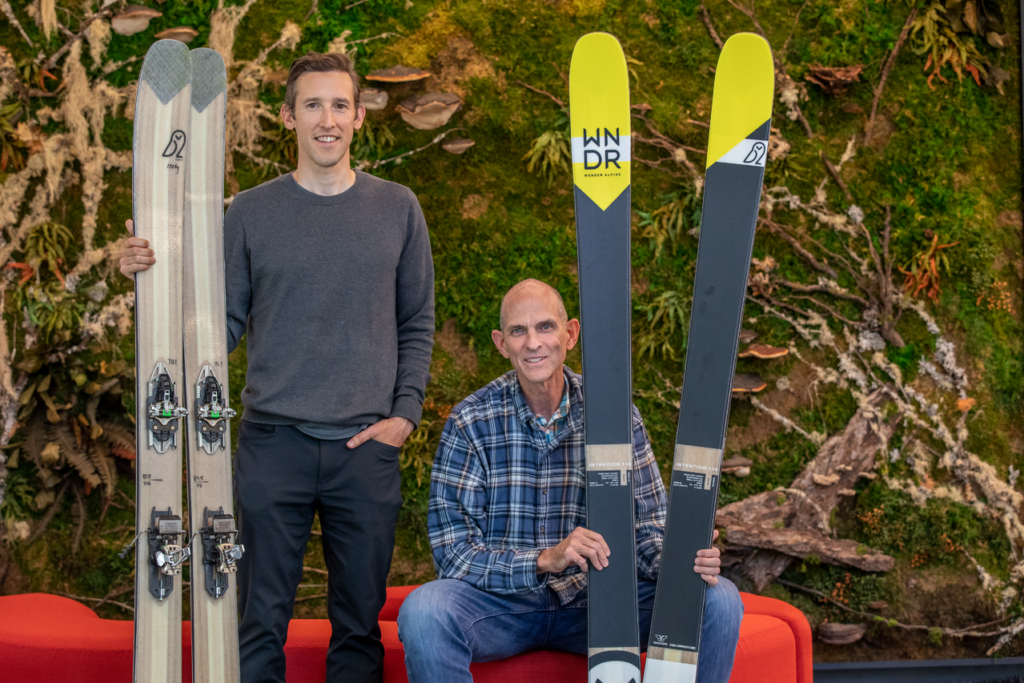
With help from ABPDU, Checkerspot, based in Alameda, California, has scaled up a process to use algae oils to create a new strong yet lightweight, flexible, and energy-damping polymer that has significant advantages for recreational equipment like skis compared to the multilayer plastic materials that are currently used. In July 2019, the company’s outdoor brand, WNDR Alpine, launched its first ski model, called Intention 110, to high acclaim. More recently, they developed human-milk analogous fats that are currently not available in baby formula. Read more.
Huue’s Nontoxic Indigo Dye

Denim jeans are currently made with indigo dye that requires toxic chemicals; for this reason, the process of dyeing denim has typically been done offshore. A technology developed by Huue, based in the Bay Area, has created a new standard in the denim industry by producing indigo dye through microbial biosynthesis. ABPDU developed the necessary downstream processes and purified the product, scaling up the process to 300 liters and generating enough product to dye a cotton yarn, the basic component of denim fabric. Huue showcased the prototype at Indiebio’s DemoDay just three months after its initial engagement with ABPDU. Read more.
Oobli’s Sweet Protein
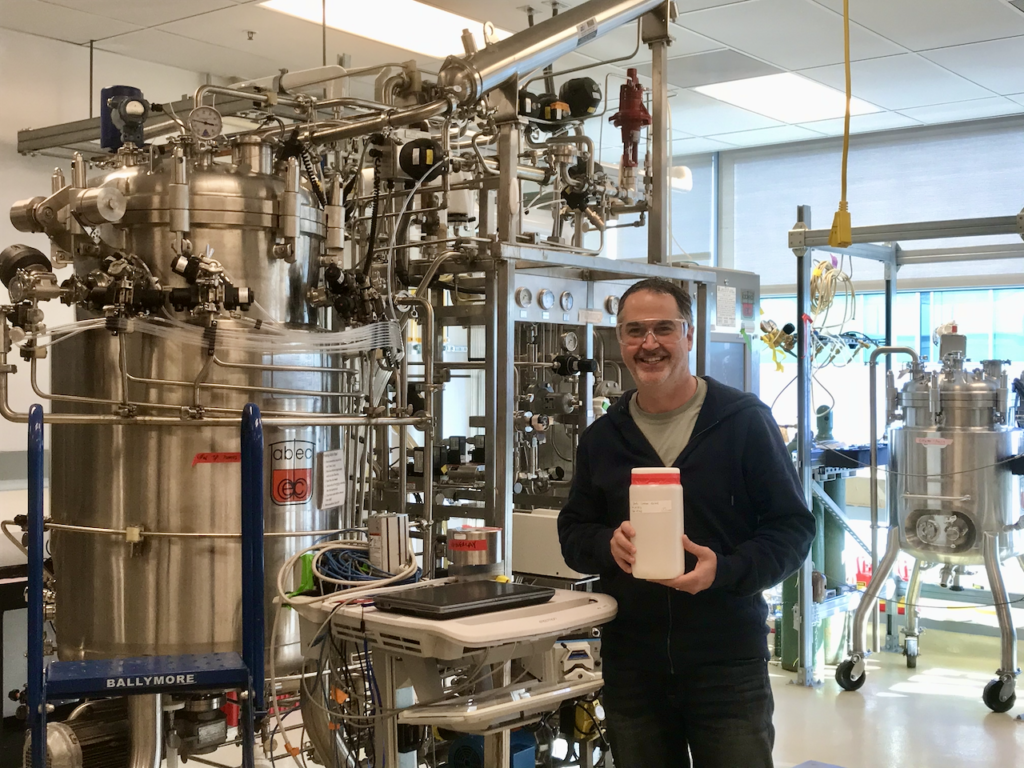
Traditional sugar and most non-nutritive sweetener alternatives have negative implications for health, and sugarcane farming has the additional impact of extensive land use. Bay Area startup Oobli (formerly Joywell Foods) has developed a fermentation process that produces sweet proteins, which mimic the taste of sugar without the adverse health effects. The company teamed up with ABPDU to scale up production of their sweet proteins. In particular, ABPDU’s expertise in running experiments with the Sartorius Ambr® 250 was vital for improving their strains. Read more.
Turning Leftover Almond Shells Into Plastic Reinforcing Agents
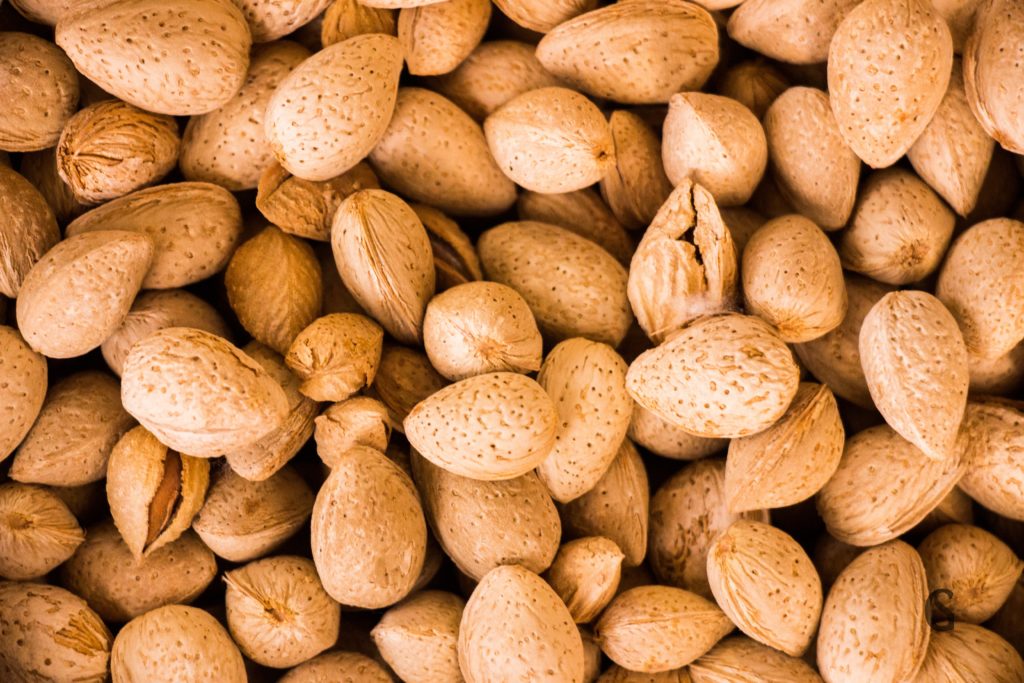
Each year, about 3 billion pounds of almonds are produced in the state of California, leaving behind over 800,000 metric tons of waste in the form of almond shells. Scientists have explored using almond shells to make fuel, but another option is using a process called “torrefaction” to turn the shells into a fine powder that can be used as a cheap, biodegradable reinforcing agent in plastics. Understanding whether this process is economically viable at a large scale is key to making it a reality. On behalf of the Almond Board of California, ABPDU conducted an analysis that shows using torrefied almond shell powder as a plastic reinforcement is an economically viable solution, compared with converting almond waste to bioethanol. The results of this study will help the Almond Board of California demonstrate that this is a viable option for repurposing almond biomass. Read more.
COVID-19 Testing and Treatment Technologies
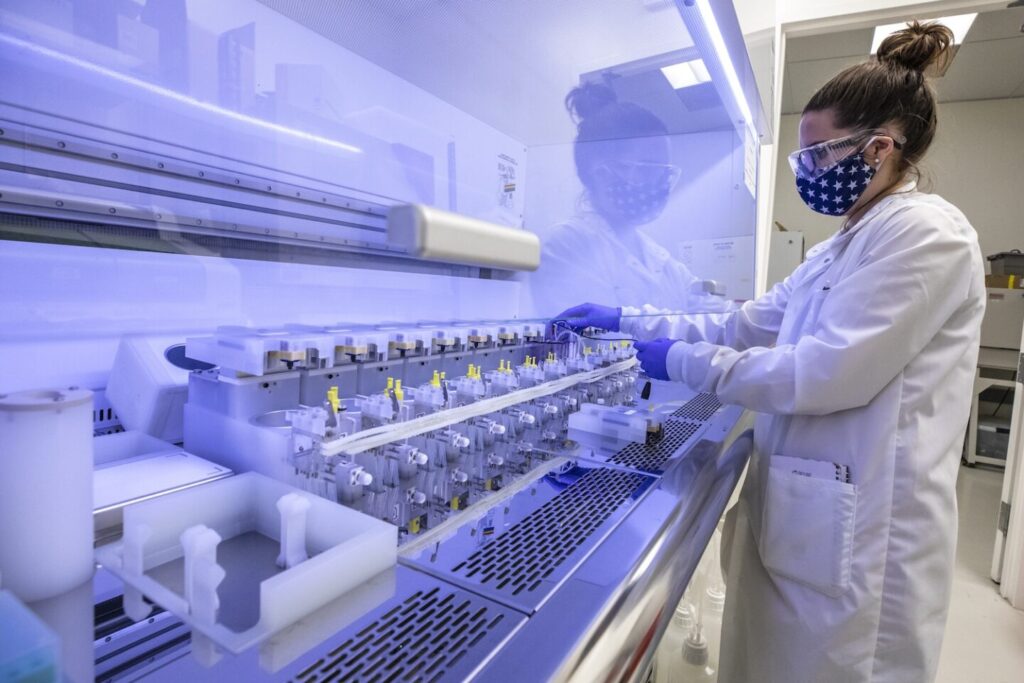
During the COVID-19 pandemic, San Francisco startup Caspr Biotech developed a testing kit that doesn’t require results to be analyzed in centralized laboratories with trained personnel and sophisticated equipment. But the company was only able to produce their key ingredient, a CRISPR Cas-12 enzyme, in tiny batches. ABPDU first scaled up Caspr’s fermentation process to their highly automated 250-milliliter bioreactor system, then successfully designed a fermentation protocol for 10-liter bioreactors. The insights generated by the 10-liter run allowed the company to further scale to commercial volumes, which are typically hundreds of thousands of liters.
Swiftscale Biologics, another startup, reached out to ABPDU for help scaling up their development and manufacturing platform for neutralizing antibodies, which are proteins produced by immune cells that allow the body to detect and combat pathogens. ABPDU worked with the company to increase its production volume 1,000-fold, which could then be used to generate enough product for clinical trials. Read more.
This post originally appeared on the Berkeley Lab News Center.